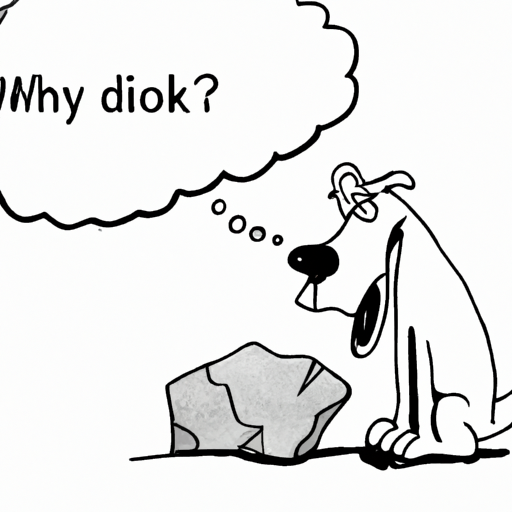Understanding Your Dog’s Behavior
You may wonder why your beloved canine companion has taken up the habit of chewing rocks. This behavior, while perplexing, is not entirely uncommon. Dogs chew on a variety of non-food items, rocks included, for a number of reasons. Understanding why your dog is engaging in this behavior is the first step to addressing it.
The Psychology Behind Rock Chewing
Dogs may chew rocks for a variety of reasons. Here are some of the most common:
- Boredom: Dogs, especially younger ones or high-energy breeds, may chew on rocks simply out of boredom.
- Teething: Just like human babies, puppies go through a teething phase that can make their gums sore. Chewing on rocks can provide relief.
- Nutrient Deficiencies: Some dogs may chew on rocks because their diet is lacking in certain nutrients.
- Behavioral Issues: It could also be a sign of a behavioral problem like obsessive-compulsive disorder.
| Reason | Details |
|---|---|
| Boredom | Lack of physical and mental stimulation |
| Teething | Discomfort due to new teeth growing |
| Nutrient Deficiencies | Lack of essential nutrients in diet |
| Behavioral Issues | Conditions such as OCD or anxiety |
Why Rock Chewing is Harmful
While it might seem harmless, rock chewing can pose significant health risks to your dog, including:
- Dental damage: Rocks are hard and can break your dog’s teeth.
- Internal injury: If swallowed, rocks can cause blockages or damage to your dog’s digestive tract.
- Nutrient imbalance: Consuming rocks can interfere with your dog’s ability to absorb nutrients from their food.
How to Prevent Your Dog from Chewing Rocks
Once you’ve identified why your dog might be chewing rocks, you can take steps to curb this behavior:
- Provide plenty of exercise and mental stimulation to prevent boredom.
- Offer chew toys that are safe and satisfying for your dog to gnaw on.
- Consult with your vet about your dog’s diet to ensure it’s balanced and nutritious.
- Seek help from a professional dog behaviorist if you suspect a behavioral issue.
Frequently Asked Questions (FAQs)
Q: Can rock chewing be a sign of a serious health issue?
A: In some cases, yes. If you notice this behavior along with other worrying symptoms, consult your vet.
Q: What should I do if my dog swallowed a rock?
A: If your dog swallows a rock, seek immediate veterinary attention.
Q: Are some breeds more likely to chew rocks than others?
A: Rock chewing is not necessarily breed-specific, although high-energy breeds may be more prone due to boredom.
Q: How can I tell if my dog’s diet is deficient in nutrients?
A: Signs can include dull coat, lethargy, and unusual eating habits like rock chewing. Consult your vet for advice.
Q: Can I train my dog to stop chewing rocks?
A: Yes, with time, patience, and possibly professional help, dogs can be trained to stop undesirable behaviors.
Remember, as a caregiver, your most crucial roles are to understand, protect, and provide for your canine companion. Understanding why your dog might be chewing rocks is an essential step towards ensuring their well-being.



